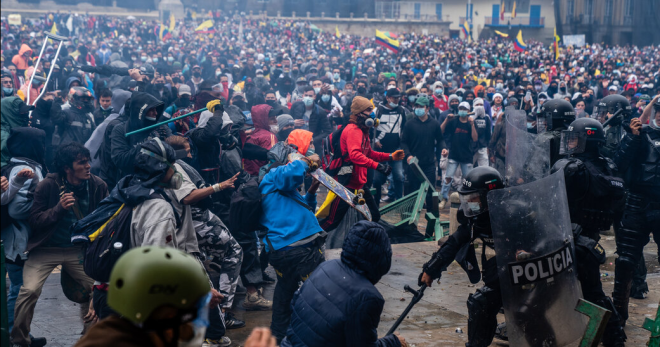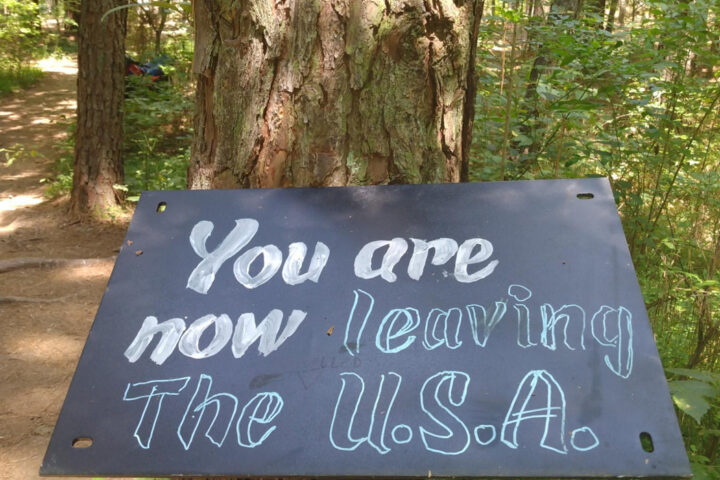Across the world, working class rebellions continue to break out and spread like the wildfires of our burning planet. Perhaps they can shed some light on solving our own problems.
In Britain, despite widespread outrage, there has currently been no real resistance to the pathetic 1% NHS pay “rise”. An alternative to clapping can be found in Neuquén, Argentina. Democratic workers’ assemblies in around 20 hospitals rejected a 12% pay rise (in 2020 inflation was 42%), but the trade union leadership accepted it anyway. In opposition to the unions and government, Argentinian health workers and their supporters held mass meetings at hospital entrances, staged unofficial strikes (which spread to other sectors) and blocked roads to disrupt the gas, oil and tourist industries. At first the offer rose to 15%, but the strikers didn’t give in and eventually won a 53% pay rise!
In Colombia, a tax reform that would have further lined the pockets of the ruling oligarchy at the expense of the poor was met with a general strike and uprising across the country at the end of April. These events follow in the wake of a similar uprising at the end of 2019. Despite ruthless repression, the economy is being shut down by road blockades, while street fighting rages against the repressive arm of the state. People have been organising in horizontal networks and popular assemblies, outside the control of political parties and trade union hierarchies. The struggle has succeeded in forcing the increased taxes and healthcare privatisation to be withdrawn, but these issues were simply the fuse on the powder keg. The effects of the pandemic inflamed existing unrest due to extreme inequality, political corruption, and continuous “disappearances” and murders at the hands of the state. Their struggle continues.
“Direct action by organised labour finds its strongest expression in the general strike, in the stoppage of work in every branch of production by the organised resistance of the proletariat, with all the consequences arising from it. It is the most powerful weapon which the workers have at their command, and gives the most comprehensive expression to their strength as a social factor.”
Rudolf Rocker
Hostilities between Israel and Palestine also flared up again for around two weeks in May, both sides targeting civilians, with 12 left dead in the former and 128 in the latter. The Left declared their support for a Palestinian state, with numerous rallies held in Liverpool. We support all attempts to resist war, such as the occupation of an Israeli-owned drone factory in Leicester (which firefighters refused to evict, unlike the police). But the creation or defence of a Palestinian nation state will not further the fight for liberation. There should be no better example of this than Israel itself, a state founded by a population who had been subjected to the horrors of Nazism, simply seeking a measure of security, only to enforce apartheid within their own borders. Instead we view an international general strike as the best means of ending future conflict, and ultimately of dismantling the states behind them. Working class internationalism isn’t just a pipe-dream, in Italy and South Africa, dockers refused to unload Israeli ships. A small seed to sow, but surely better than picking the rotten fruits of nationalism?




